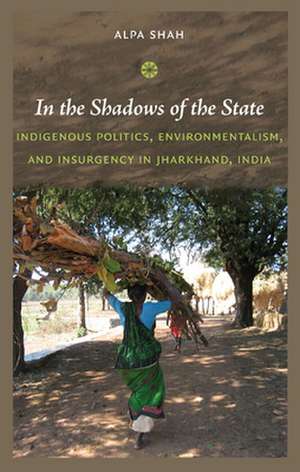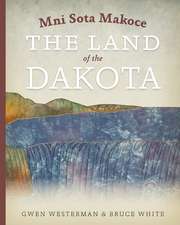In the Shadows of the State – Indigenous Politics, Environmentalism, and Insurgency in Jharkhand, India
Autor Alpa Shahen Limba Engleză Paperback – aug 2010
Preț: 262.14 lei
Nou
Puncte Express: 393
Preț estimativ în valută:
50.17€ • 54.47$ • 42.14£
50.17€ • 54.47$ • 42.14£
Carte tipărită la comandă
Livrare economică 23 aprilie-07 mai
Preluare comenzi: 021 569.72.76
Specificații
ISBN-13: 9780822347651
ISBN-10: 0822347652
Pagini: 288
Ilustrații: 20 illustrations
Dimensiuni: 150 x 233 x 20 mm
Greutate: 0.4 kg
Editura: MD – Duke University Press
ISBN-10: 0822347652
Pagini: 288
Ilustrații: 20 illustrations
Dimensiuni: 150 x 233 x 20 mm
Greutate: 0.4 kg
Editura: MD – Duke University Press
Cuprins
List of Illustrations; Acknowledgments Prologue; 1. The Dark Side of Indigeneity; 2. Not Just Ghosts: Democracy as Sacral Polity; 3. Shadowy Practices: Development as Corruption; 4. Dangerous Silhouettes: Elephants, Sacrifice, and Alcohol; 5. Night Escape: Eco-incarceration, Purity, and Se; 6. The Terror Within: Revolution against the State?; Epilogue: Arcadian Spaces beyond the Shadows of the State Glossary of Terms; Notes; Bibliography; Index
Recenzii
Alpa Shahs book is an engaged and exceptionally lively account of the intersection between the everyday state and the people of one of Indias most marginalized tribal areas. A major contribution to the regional literature, her sometimes counterintuitive, often sobering, but always compelling analysis richly deserves the attention of anyone interested in the politics of indigeneity and its uneasy relationship with class politics and with left-wing activism.Jonathan Parry, London School of EconomicsPresenting a sophisticated analysis of original empirical material based on sensitive long-term ethnographic fieldwork, Alpa Shah directly challenges existing frameworks in and beyond academic anthropology, and she provides important new perspectives on indigenous governance, development, the anthropology of the state, corruption and local democracy, the politics of conservation, and environmental and Maoist movements. In the Shadows of the State demonstrates the value of critical ethnography; it is likely to be read as an exemplar.David Mosse, author of Cultivating Development: An Ethnography of Aid Policy and PracticeIn the Shadows of the State is an important, original, thoughtful, and beautifully written book. I have no doubt that it will be considered the single most important account we have of state-society relations in Jharkhand. It is also a remarkably erudite and properly critical account of the production and use of indigeneity and development as social constructions that can contribute to the domination of poor rural Jharkhandis. Its significance ranges far beyond India.Stuart Corbridge, co-author of Jharkhand: Environment, Development, EthnicityIn the Shadows of the State is a fine and unusual study of indigenous politics, culture, and activism, which will be of interest to students of India as well as of the cultural politics of indigeneity elsewhere in the world. Alpa Shah provides a robust and non-sentimental ethnography of the realities and contradictions of tribal life, and a powerful critique of the practices of the state, NGOs, and the highly vocal middle-class activists who promote preservation of both natural resources and pristine tribal life.Thomas Blom Hansen, co-editor of States of Imagination: Ethnographic Explorations of the Postcolonial State
Notă biografică
Textul de pe ultima copertă
""In the Shadows of the State" is a fine and unusual study of indigenous politics, culture, and activism, which will be of interest to students of India as well as of the cultural politics of indigeneity elsewhere in the world. Alpa Shah provides a robust and non-sentimental ethnography of the realities and contradictions of tribal life, and a powerful critique of the practices of the state, NGOs, and the highly vocal middle-class activists who promote preservation of both natural resources and pristine tribal life."--Thomas Blom Hansen, co-editor of "States of Imagination: Ethnographic Explorations of the Postcolonial State"
Descriere
An argument that well-meaning indigenous rights and development claims and interventions may misrepresent and hurt the very people they seek to help, based on extensive ethnographic research in eastern India











